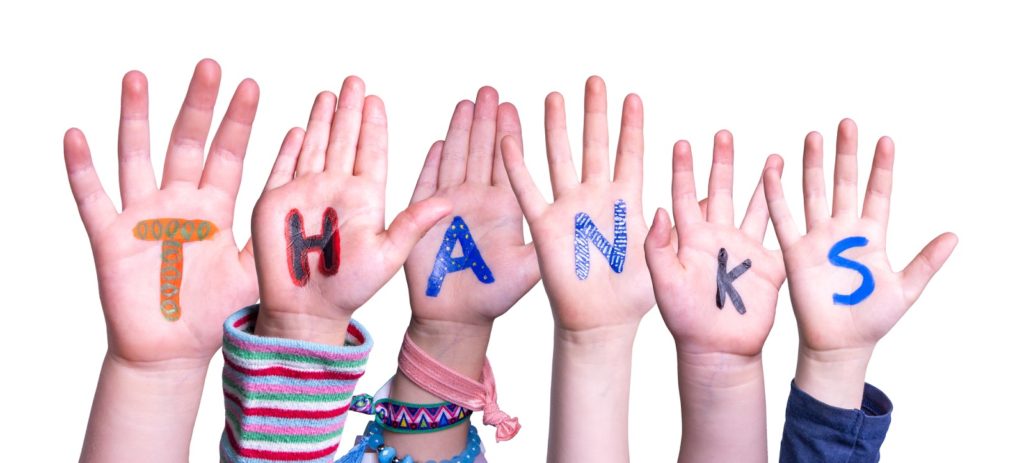Gratitude is an important life skill that allows us to achieve ultimate happiness and show our appreciation to others. It propels kindness and positivity and is a valuable tool for navigating setbacks. As we age, we tend to improve our abilities to be grateful and see the world in a different light.
However, gratitude can be difficult for children. As their brains and cognitive abilities still develop, it can be hard to appreciate blessings and practice gratitude. While development will certainly help, there are also things you can do as a parent to teach your child to be grateful.
Lead by Example
It’s natural to get frustrated and complain occasionally but think about the message that sends to kids. To teach kids about gratitude, you must demonstrate it yourself. Make your gratitude clear by stating it out loud. Some ways to show your own gratitude in front of your kids include:
- Saying thank you to staff at restaurants, teachers, spouses, etc when they do something for you.
- Telling your child how grateful you are for them.
- Using negative moments as an opportunity to express gratitude and shift your perspective. For example, imagine you are late to an event because of a car accident ahead. Instead of complaining and expressing annoyance, you can say something like “I hope those people are okay. I am so grateful we are all healthy and together.”
Encourage Thank You’s
Saying thank you is not necessarily gratitude, but it is a good start and an understandable concept for most kids. Prompt your child to say thank you when someone else does something for them. Be gentle with reminders, not demanding. At first, the thank you’s may not seem genuine, but they are a first step in recognizing other people for being helpful or kind. You can also write “thank you” notes with your children to people who give them gifts or have done something for them. Go a step further and acknowledge and praise your child when they demonstrate prosocial behavior like saying thank you. Explain how you really liked the behavior and that it was a kind gesture.
Share Gratitude Year-Round
Many families discuss what they are grateful for during certain holidays, like Thanksgiving. That’s a great way to celebrate the holiday, but gratitude shouldn’t be confined to those occasions. Make gratitude a regular habit. Include it at the dinner table or before bedtime. Discussing what we are grateful for does not have to be long-winded each and every time. Instead, focus on sharing something you are grateful for that day, week, etc. Encourage your child to foster gratitude by discussing what it means to be grateful, how we can show gratitude, and why we are grateful for the things we are.








